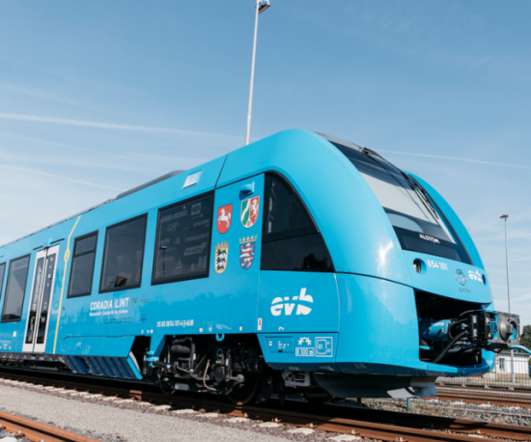AKASOL to supply battery systems for Alstom’s hydrogen trains
Green Car Congress
JANUARY 14, 2020
The systems not only provide the power needed for propulsion but also supply power for on-board systems like lighting and air conditioning. AKASOL and Alstom are convinced that hydrogen fuel cell-based propulsion will prove to be another key driver, alongside pure electric vehicles, on the way towards an emission-free transportation system.














Let's personalize your content